Chris Cornell talks Johnny Cash, Audioslave reunion and Higher Truth
In-depth with the Soundgarden frontman
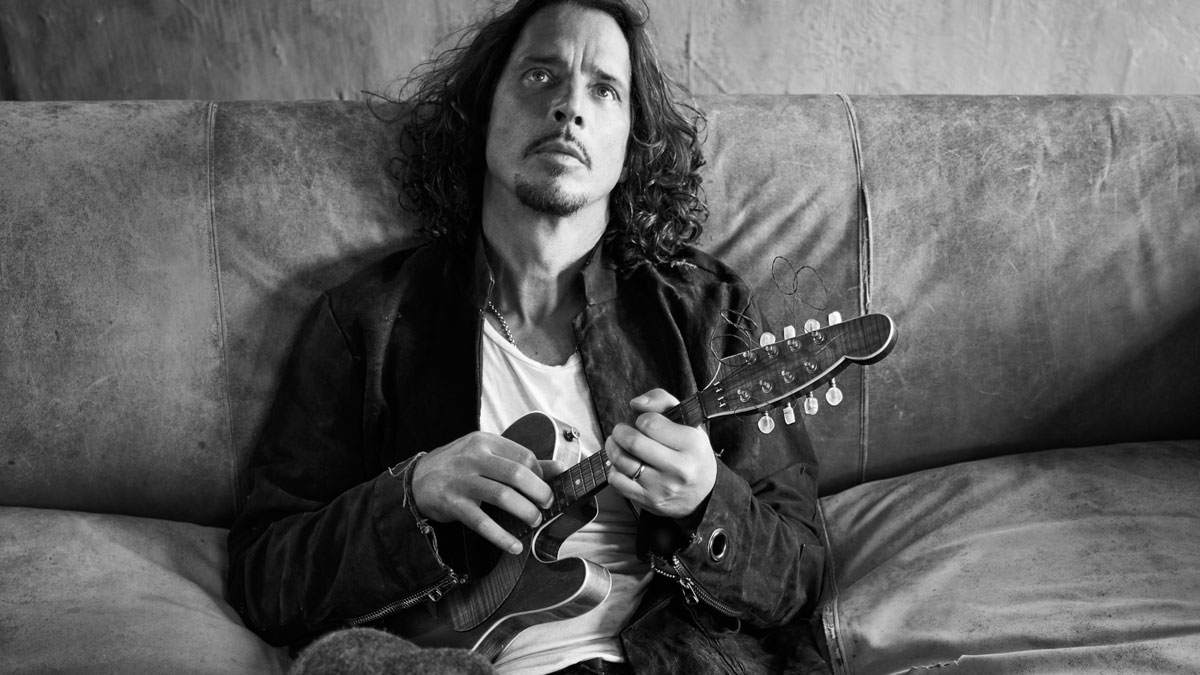
Introduction
As he readies folk-inspired acoustic solo album Higher Truth, Soundgarden frontman Chris Cornell reveals yet another side to his multifaceted songwriting
When he's not delivering inhuman wails and impossibly crushing riffs in Soundgarden, rock legend Chris Cornell can be found storytelling with just a voice and an acoustic guitar.
In a journey that started with the grunge pioneer's Songbook acoustic tours - stripping Soundgarden, Audioslave, Temple Of The Dog and solo songs to their bare bones - Higher Truth is the destination, an album that welcomes a host of folk and acoustic influences, while retaining Cornell's trademark left-field approach to progression and melody.
He gave us the lowdown on the origins of his new stripped-back sound, why he had to put in the hours with his acoustic playing and how Johnny Cash altered his perception of songwriting forever…
How did the songs on Higher Truth come about?
I'm one of those guys that does really well going into the corner of a room with the door closed
“It was a period of three years, working on and off, and that wasn't really the plan; the plan was that I was gonna sit down and concentrate on writing some acoustic songs, and that was going to happen really quickly. And it ended up just being periods of jamming, songwriting and then touring - on my own as well as with Soundgarden - and I think that was a really good thing.
“There's a relaxed nature to the songwriting that isn't always there for me, because there's an overfocused-ness that happens when I'm working on songs. I'm one of those guys that does really well going into the corner of a room with the door closed and being in there for months and coming out with music and having a record.
“That's what my nature lends itself best to: that over-concentrating. That can create problems, where you lose perspective, but I think it becomes a little more musically confined in terms of one direction and one feel.
“And time passing seems to help that. There are a couple of songs that I wrote - Worried Moon and Through The Window - over the course of a couple of days, and the two of them sound like brothers; they sound like the guy that's singing each one is the same guy.
“And then there are songs that are older songs, that feel a little bit like a different person - and it's a slightly different period of songwriting. I think Murderer Of Blues Skies and Before We Disappear, those were like brothers - those were conceived and arranged in the same week, but a different year.”
Don't Miss
Alain Johannes talks lessons learned with Homme, Cornell and Lanegan
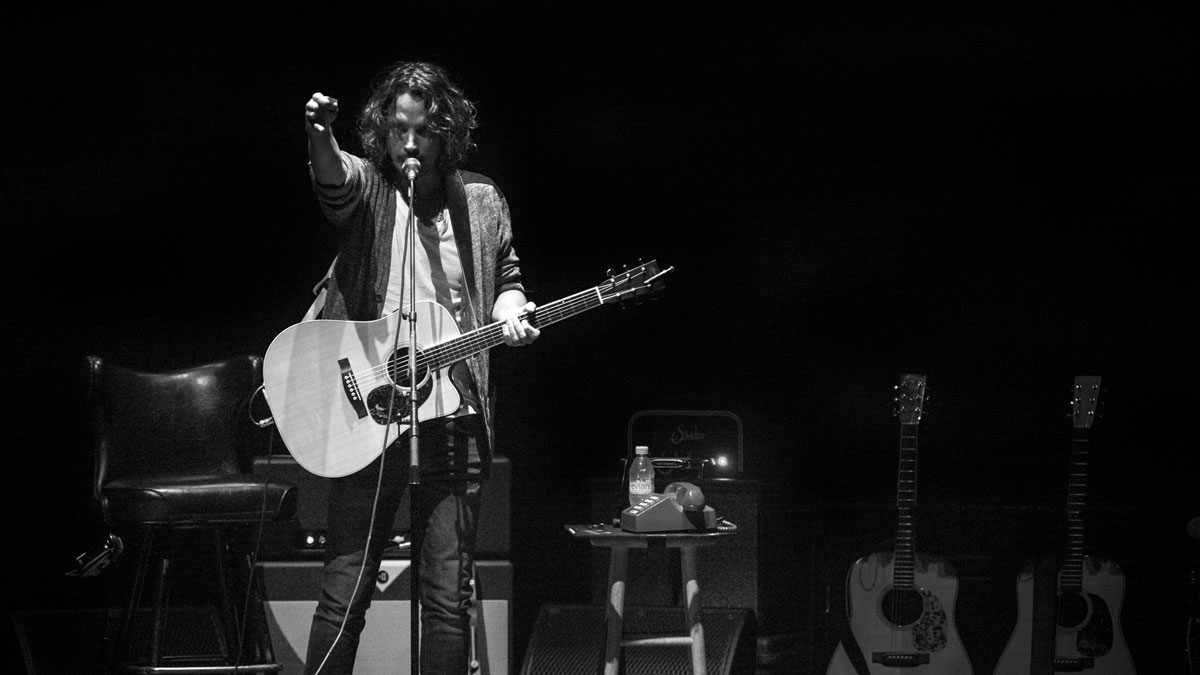
Rolling back the tracks
How far do some of these compositions go back?
“Well, the oldest one would be Josephine, because I wrote it for my would-be wife, Vicky, at the time [in the mid-2000s] - I sang the chorus to her over the phone, but I had her name in there. Josephine came in there because singing Vicky sort of poetically in the chorus just didn't work as well as Josephine!
I was able to put myself back in the shoes of the guy I was 12 years ago, and what I was feeling and what I was thinking
“In one of our early conversations that we had in Paris, she was talking about Napoleon and Josephine, and how much Napoleon loved this woman and he'd made all these sacrifices for her, and I think in a way, it's sort of pointing out, 'This is what real love is; that's what I expect: I expect somebody to sacrifice the world.' That description of what undying, permanent love is. So, bringing that name into the song was one of the things that suddenly made it start to work for me.
“But I recorded a version of it in 2006, for my album, Carry On, and it just didn't work: I felt like it just wasn't right; it didn't sit right, parts of it felt forced. I wasn't in the right place to make that song work yet. And when I started writing for this album, I knew that that song, the idea of it, was going to be perfect, but I needed to really correct it somehow.
“And so how I did it was I didn't refer back to any old version - I'm not sure what the original lyrics were, I don't know what chords I played or what key it was in; I just took the basic idea and tried to somehow approach it so it would come out more honestly, and more emotionally to the direct point of the original idea of the song.
“And I think time really helped that. I was able to put myself back in the shoes of the guy I was 12 years ago, and what I was feeling and what I was thinking, and with that distance, all the words just seemed to pour out in succession perfectly, and I'm suddenly singing exactly what I wanted to sing.
“That doesn't happen that often - I think maybe Fell On Black Days was another one where I knew what I wanted to say, but I just couldn't find the right landscape for it, and in Soundgarden, we probably wrote three or four versions of Fell On Black Days, where the music was completely different to the one that is now known.”
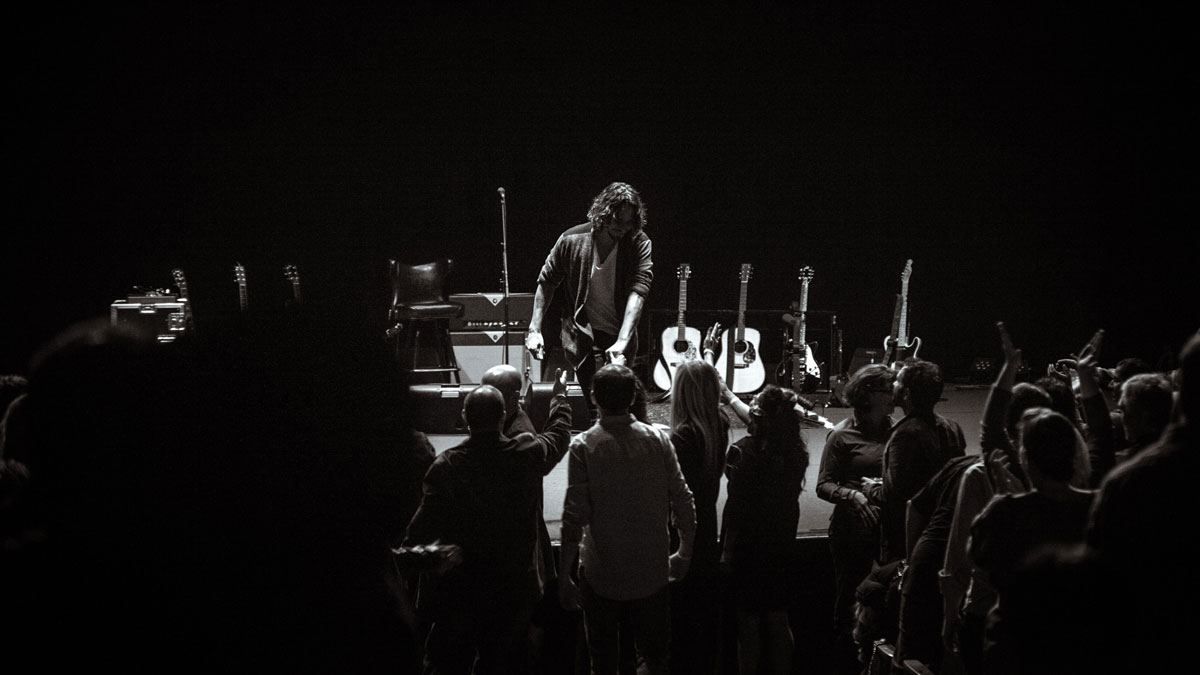
Folkie feelings
There's a real folk feel to Higher Truth; did you absorb any different influences this time around?
“I have a pretty big bag of influences when it comes to all kinds of music. When you start talking about acoustic records, and particularly getting into the world of either folk or that kind of Nashville singer-songwriter approach, there are still certain rules of what is and isn't okay in those worlds. And I can't be bothered with that.
“I feel like, with me and my band, we essentially invented a new genre of music, so we don't really have to follow rules. I don't have to think about it! I proved myself on that level.
I got into a bunch of different approaches to [playing], so that I had more bullets in the gun when I sat down with an acoustic guitar
“In order to express what I wanted to, for example, on songs like Worried Moon or Dead Wishes, I had to learn different styles of guitar playing, and I did that basically from learning songs that I love, and knowing that those techniques were techniques that I could use on these new songs that I'm writing.
“Whether it's something like Going To California or a Nick Drake song - I worked back and learned a bunch of Nick Drake songs, and I went back and learned some Beatles songs where there are different ways that Paul McCartney or John Lennon would pick through songs, and just got into a bunch of different approaches to it, so that I had more bullets in the gun when I sat down with an acoustic guitar and tried to write a song.
“And I ended up going way past what I needed to, to get what I wanted done, but it was good, because it's a big leap forward in terms of understanding the instrument.
“My approach to guitar has always been, 'I don't want to know anything; I don't want to learn anything from anybody else. I just want to make it sound in ways that I think are cool, and if I do that, then there's always gonna be some degree of personal stamp on whatever that song is.' I had to reach out a little more into the history of songwriting and guitar players and actually learn some stuff!”
Did you use any unorthodox tunings on the album?
“Dead Wishes, I probably made that one up - I think it started with a simple G string turned down to E, which is a Nick Drake tuning, but as I was trying to work out the notes I wanted to hear, I had to tune the D up to E, so there's two Es in the middle [EAEEBE]. And it's one of those mystical, almost British folk tunings, that sort of pastoral, nuns and fairies, misty mountain feeling. But it doesn't sound like anything else to me.”
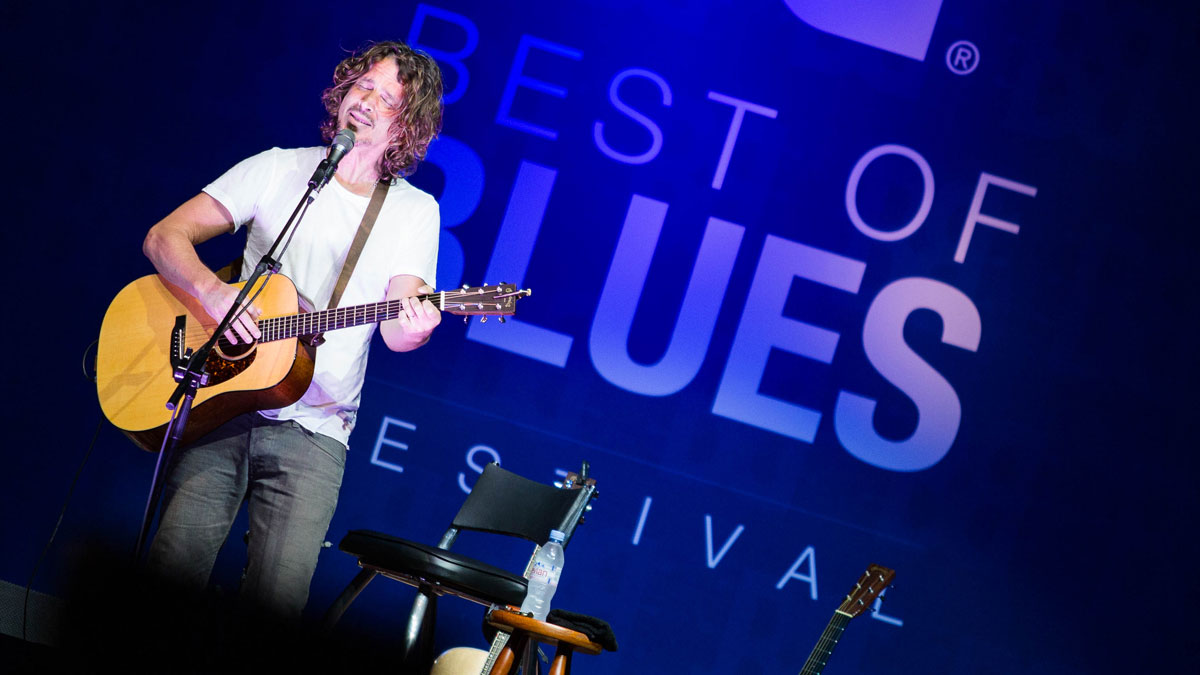
Brendan the bassist
What did Brendan O'Brien bring to the table as producer?
“He's a brilliant bass player! [laughs] I had no idea. He's an amazing musician, and I mean that - and I kind of learned that from Revelations, the third Audioslave album. As a band, we didn't get too much into pre-production, where he would help us with song arrangements, but we did do a little bit of it, and it was clear if he picked up a guitar and played to show us a transition chord or something that might work better, he knew what he was doing; he wasn't guessing.
Anything that sounds like this guy's an accomplished guitar player when he plays a solo, that's not me!
“So, I knew he was smart, and I knew he was a good musician, but I didn't know, necessarily, how good, and when I decided to work with him, the main reason was because I like how he records things, I like how he mixes things, obviously, so I knew the record would sound good. And knowing that he can play a lot of instruments, and has an extreme focus like I do in the studio, I felt like, 'If it's just him and me and nobody else, we can make the album that I want to make.'”
Was he playing the electric solos on tracks like Murderer Of Blue Skies?
“I play a couple; Brendan plays a lot. Anything that sounds like this guy's an accomplished guitar player when he plays a solo, that's not me [laughs]. That'll be him. I was speaking to Guitar World and they were sure that Brendan played the solo to Nearly Forgot My Broken Heart, and I said, 'Well, no, that's one I can play!' That's one note bent a bunch [sings solo] - I can do that!”
What were your main guitars on the album?
“Everything was written on a Martin D-28, and I used that for most of the record. I used a couple of Brendan's old Martins in there - they all had a little bit of a different sound to them, but it was all either mine or his Martin guitars.
“Those are the ones that always seem to just work. They sound great, they fit right into a mix; there's that combination of it being a stringed instrument, it's raw and it's rough, but it's warm enough to sound like beautiful music at the same time.”
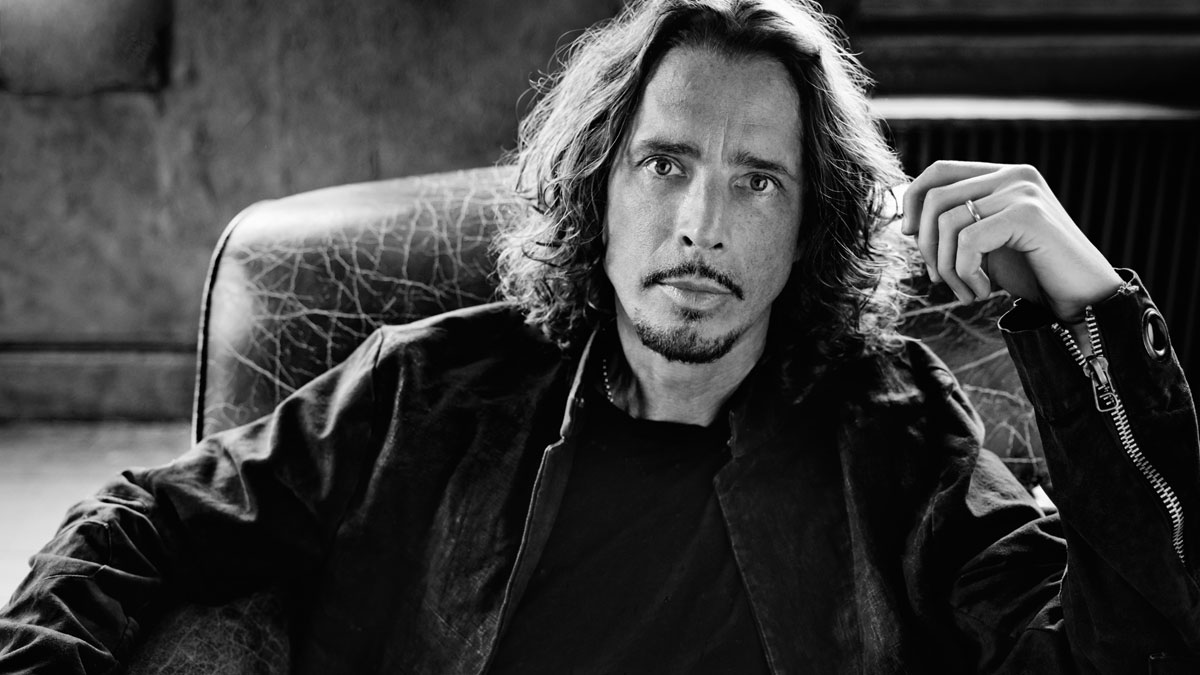
Soundtrack to an imaginary world
You've covered a broad range of material from your various projects; how do you go about adapting those songs for acoustic?
“It either works or it doesn't, and if I really want to push the issue, I will try different arrangements to make something work. You know, I've done that with both Audioslave songs and Soundgarden songs, and continue to do it, because I get better at it and have a better understanding of what it means to just be playing the song on an acoustic guitar, and what does and doesn't have to be there. I open it up to a longer list of songs that I can adapt to it.
Higher Truth is an album of songs that have been written from the perspective of starting with being pared down
“Sometimes, it just naturally works in that environment - like Like A Stone or Fell On Black Days - and some songs take a little bit more thought. But it's interesting, because essentially, the Songbook solo acoustic touring up to now has been doing that, mostly - taking songs that people have heard as very aggressive, rock-band arrangements that are now being pared down to their simplest form.
“Higher Truth, on the other hand, is an album of songs that have been written from the opposite perspective: of starting with being pared down and having to work that way all the way through first, so it will be interesting to see how they integrate into the set.”
Is there a different songwriting process when writing for Soundgarden compared with writing solo?
“Well, I think I just react to different aspects of songwriting. Soundgarden, always, first of all, is going to be a bit more of 'what is the guitar doing' or 'what's the bass doing' - in terms of imagining songs, it's a rock band, always. And it's a specific one that I have an intimate knowledge of, and an understanding of what I think that band should sound like.
“So, it's not so much starting from, 'Oh, here's a lyrical idea; here's a story I want to tell and what the music needs to do with that.' It kind of starts with the music first, sometimes, and then, when that music seems like it's going to inspire a Soundgarden song, then I go and work out, 'What am I singing about over this?'
“So, it's pretty different. I think of it as, really, no matter what I'm writing, I'm writing a soundtrack to a somewhat imaginary world, so I sort of first have to get lost in what that imaginary world is, and then start listening and work out, 'What am I hearing in here?'”
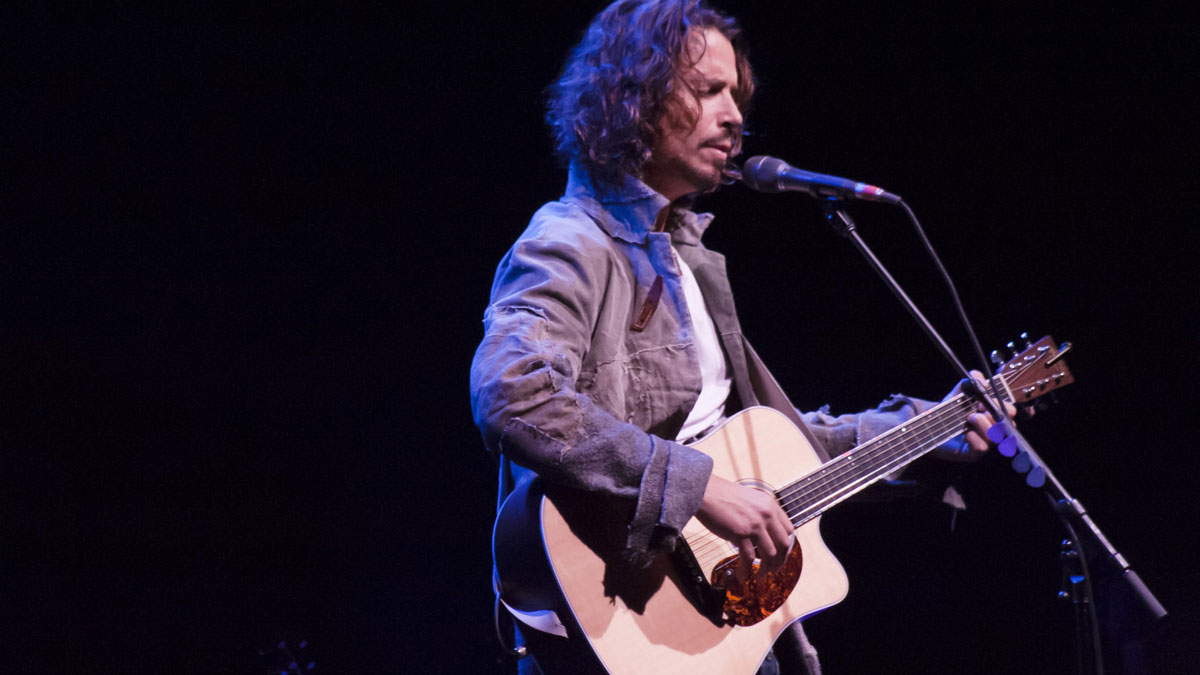
Chord subversion
You rarely adhere to conventional chord progressions; is that a conscious decision?
“You need to make the songs work, and there needs to be a flow, and I don't want to distract the listener from the song by putting in something unnecessary in terms of a chord change or a melody line or any kind of instrumental approach. But by the same token, you can't leave the listener losing interest or falling asleep, and that's the art form, I guess.
My first thought was, 'Oh fuck, I've been doing this wrong my whole career!
“Years ago - it was before Johnny Cash did a version of Rusty Cage - Rick Rubin asked me to write a song for [Cash]; he was asking a lot of younger musicians at the time to send their original songs. And I did write a song called Cleaning My Gun, and he loved the song, but he didn't want to do it.
“And so, I had to ask, 'Well, why didn't you want to do it?' And the answer I got was that there was too much range in the vocal arrangement. And his point was that he likes to do songs that anybody can sing, and that went into the back of my mind - my first thought was, 'Oh fuck, I've been doing this wrong my whole career! I've been doing the opposite: I'm writing songs that I can barely sing, let alone somebody else.'
“I wrote songs with lots of chords that are not necessarily easy even for me to play; I write songs, sometimes, with real challenging vocal parts to sing. But I wanted to make sure that there are some songs in there [on Higher Truth] that somebody could learn and post themselves on YouTube singing, and it's easy. It's just something that you can learn after a couple of listens - maybe you don't even have to know what key I'm playing it in.
“Before We Disappear or Josephine, songs like that, where it's just standard tuning and standard chords, they can be sung in any key and it's gonna work. And even a song like Let Your Eyes Wander, if you're just strumming and plucking, it's pretty straightforward - there are one or two curves that are thrown in that I think make the arrangement fun and interesting, but those still live in a world where you could do them round a campfire and not have to have five years of guitar playing experience to do it.”
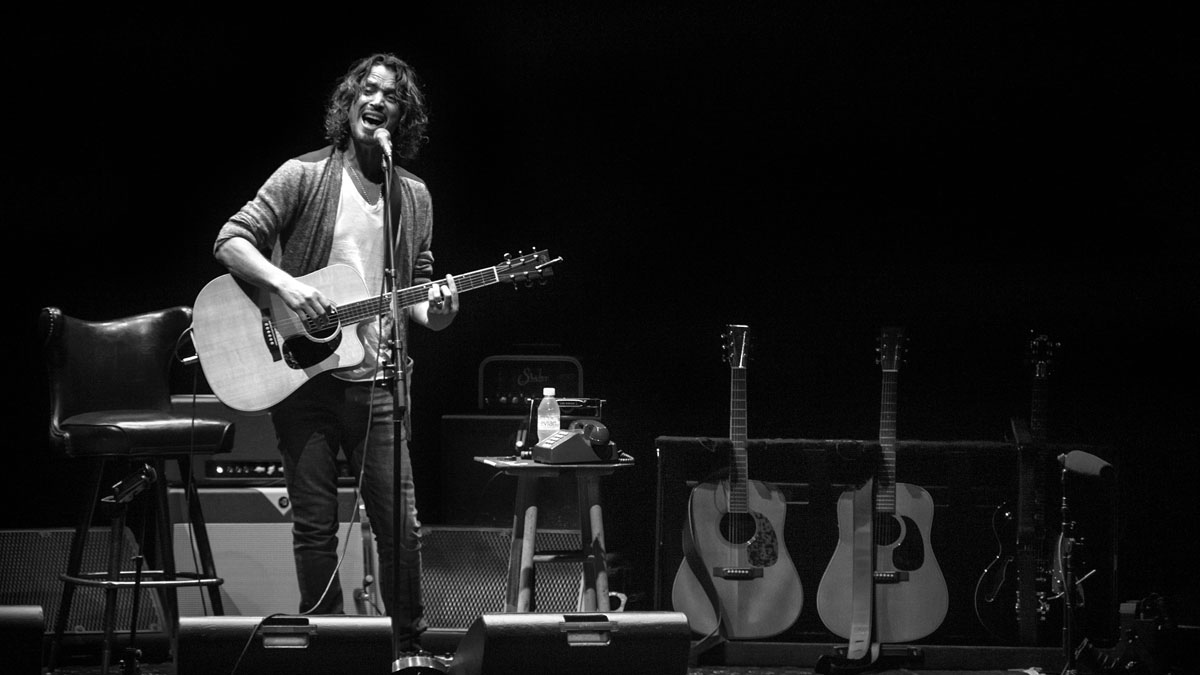
Out of exile?
Tom Morello recently said he'd love to work with you again; would you be open to playing with Audioslave again?
“Yeah, I think it would be great. We did a lot of songs, and with the benefit of having not done anything with those guys for so long, I can't imagine what it would be. It would be a really amazing experience just to get back and work with the same guys again.
I really enjoyed the experience that I had with them, so yeah, I would always be open to doing something
“We were certainly a prolific group of people; we wrote three whole albums in around five years, maybe less. And these were albums that were raw, and we had extra material, and we just never seemed to have trouble ever trying to agree on what would come out of the songs.
“They were great guys, and I really enjoyed the experience that I had with them, so yeah, I would always be open to doing something.”
What's next for you - a new solo record or another Soundgarden album?
“Well, I'm working on new Soundgarden songs, and I'm getting ready to go out and tour for quite a while on this album, so that's kind of all I've got on my mind right now. There are a couple of other little things, too - I have basically too much to think about, which is about where I usually keep it: just on the wrong side of too much!”
Higher Truth is out now.
Don't Miss
Alain Johannes talks lessons learned with Homme, Cornell and Lanegan
Mike has been Editor-in-Chief of GuitarWorld.com since 2019, and an offset fiend and recovering pedal addict for far longer. He has a master's degree in journalism from Cardiff University, and 15 years' experience writing and editing for guitar publications including MusicRadar, Total Guitar and Guitarist, as well as 20 years of recording and live experience in original and function bands. During his career, he has interviewed the likes of John Frusciante, Chris Cornell, Tom Morello, Matt Bellamy, Kirk Hammett, Jerry Cantrell, Joe Satriani, Tom DeLonge, Radiohead's Ed O'Brien, Polyphia, Tosin Abasi, Yvette Young and many more. His writing also appears in the The Cambridge Companion to the Electric Guitar. In his free time, you'll find him making progressive instrumental rock as Maebe.


